- Clone
- B73.1 (See other available formats)
- Regulatory Status
- RUO
- Other Names
- FcγRIII, IGFR3, FCG3, FCGR3, FCGRIII, Fc gamma receptor, Fc gamma receptor 3, CD16a
- Isotype
- Mouse IgG1, κ
- Ave. Rating
- Submit a Review
- Product Citations
- publications
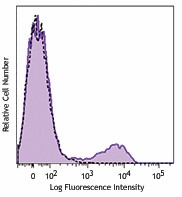
-

Human peripheral blood lymphocytes were stained with CD16 (clone B73.1) PE/Dazzle™ 594 (filled histogram) or Mouse IgG1, κ isotype control PE/Dazzle™ 594 (open histogram).
| Cat # | Size | Price | Quantity Check Availability | Save | ||
|---|---|---|---|---|---|---|
| 360722 | 100 tests | 296€ | ||||
CD16 is known as low affinity IgG receptor III (FcγRIII). It is expressed as two distinct forms (CD16a and CD16b). CD16a (FcγRIIIA) is a 50-65 kD polypeptide-anchored transmembrane protein. It is expressed on the surface of NK cells, activated monocytes, macrophages, a subset of T cells and placental trophoblasts in humans. CD16b (FcγRIIIB) is a 48 kD glycosylphosphatidylinositol (GPI)-anchored protein. Its extracellular domain is over 95% homologous to that of CD16a, and it is expressed specifically on neutrophils. CD16 binds aggregated IgG or IgG-antigen complex which functions in NK cell activation, phagocytosis, and antibody-dependent cell-mediated cytotoxicity (ADCC).
Product DetailsProduct Details
- Verified Reactivity
- Human
- Antibody Type
- Monoclonal
- Host Species
- Mouse
- Immunogen
- NK cell-enriched fraction from human peripheral blood.
- Formulation
- Phosphate-buffered solution, pH 7.2, containing 0.09% sodium azide and BSA (origin USA)
- Preparation
- The antibody was purified by affinity chromatography and conjugated with PE/Dazzle™ 594 under optimal conditions.
- Concentration
- Lot-specific (to obtain lot-specific concentration, please enter the lot number in our Concentration and Expiration Lookup or Certificate of Analysis online tools.)
- Storage & Handling
- The antibody solution should be stored undiluted between 2°C and 8°C, and protected from prolonged exposure to light. Do not freeze.
- Application
-
FC - Quality tested
- Recommended Usage
-
Each lot of this antibody is quality control tested by immunofluorescent staining with flow cytometric analysis. For flow cytometric staining, the suggested use of this reagent is 5 µl per million cells in 100 µl staining volume or 5 µl per 100 µl of whole blood.
* PE/Dazzle™ 594 has a maximum excitation of 566 nm and a maximum emission of 610 nm. - Excitation Laser
-
Blue Laser (488 nm)
Green Laser (532 nm)/Yellow-Green Laser (561 nm)
- Application Notes
-
The epitope recognized by clone B73.1 is in the first membrane distal Ig-like domain of the CD16 molecule, which is different from that of clone 3G84.
Donor variability has been observed for clone B73.1 staining1, especially on granulocytes. -
Application References
(PubMed link indicates BioLegend citation) -
- Perussia B, et al. 1983. J. Immunol. 130:2133.
- Lanier LL, et al. 1985. J. Exp. Med. 162:2089.
- Perussia B, et al. 1984. J. Immunol. 133:180.
- Grier JT, et al. 2012. J. Clin. Invest. 122:3769. (Epitope)
- RRID
-
AB_2565425 (BioLegend Cat. No. 360722)
Antigen Details
- Structure
- Ig superfamily, transmembrane form (50-65 kD) or GPI-linked form (48 kD)
- Distribution
-
NK cells, activated monocytes, macrophages, neutrophils and a subset of T cells
- Function
- Low affinity IgG Fc receptor, phagocytosis, ADCC
- Ligand/Receptor
- IgG Fc receptor III (FcγRIII)
- Cell Type
- Macrophages, Monocytes, Neutrophils, NK cells, T cells
- Biology Area
- Immunology, Innate Immunity
- Molecular Family
- CD Molecules, Fc Receptors
- Antigen References
-
1. Schubert J, et al. 1989. In Leucocyte Typing IV (Knapp W, ed) Oxford University Press Oxford pp 711.
2. Palmer BE, et al. 2005. J. Immunol. 175:8415.
3. Schachner M and Martini R. 1995. Trends Neurosci. 18:183.
4. Wood KL, et al. 2005. Clin. Immunol. 117:294.
5. Björkström NK, et al. 2008. J. Immunol. 181:4219. - Gene ID
- 2214 View all products for this Gene ID 2215 View all products for this Gene ID
- UniProt
- View information about CD16 on UniProt.org
Related FAQs
Other Formats
View All CD16 Reagents Request Custom Conjugation| Description | Clone | Applications |
|---|---|---|
| Purified anti-human CD16 | B73.1 | FC |
| PE anti-human CD16 | B73.1 | FC |
| APC anti-human CD16 | B73.1 | FC |
| PE/Cyanine7 anti-human CD16 | B73.1 | FC |
| APC/Cyanine7 anti-human CD16 | B73.1 | FC |
| PerCP/Cyanine5.5 anti-human CD16 | B73.1 | FC |
| Alexa Fluor® 647 anti-human CD16 | B73.1 | FC |
| FITC anti-human CD16 | B73.1 | FC |
| Alexa Fluor® 700 anti-human CD16 | B73.1 | FC |
| PerCP anti-human CD16 | B73.1 | FC |
| PE/Dazzle™ 594 anti-human CD16 | B73.1 | FC |
| Brilliant Violet 421™ anti-human CD16 | B73.1 | FC |
| APC/Fire™ 750 anti-human CD16 | B73.1 | FC |
| Brilliant Violet 605™ anti-human CD16 | B73.1 | FC |
| Brilliant Violet 711™ anti-human CD16 | B73.1 | FC |
| Brilliant Violet 510™ anti-human CD16 | B73.1 | FC |
| Brilliant Violet 785™ anti-human CD16 | B73.1 | FC |
| PE/Cyanine5 anti-human CD16 | B73.1 | FC |
| TotalSeq™-A1256 anti-human CD16 | B73.1 | PG |
Customers Also Purchased
Compare Data Across All Formats
This data display is provided for general comparisons between formats.
Your actual data may vary due to variations in samples, target cells, instruments and their settings, staining conditions, and other factors.
If you need assistance with selecting the best format contact our expert technical support team.
-
Purified anti-human CD16
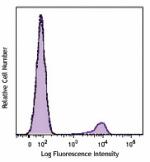
Human peripheral blood lymphocytes were stained with purifie... -
PE anti-human CD16
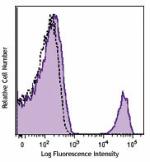
Human peripheral blood lymphocytes were stained with CD16 (c... -
APC anti-human CD16
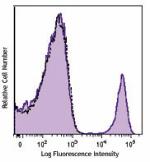
Human peripheral blood lymphocytes were stained with CD16 (c... -
PE/Cyanine7 anti-human CD16
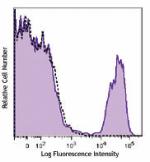
Human peripheral blood lymphocytes were stained with CD16 (c... -
APC/Cyanine7 anti-human CD16

Human peripheral blood lymphocytes were stained with CD56 FI... -
PerCP/Cyanine5.5 anti-human CD16
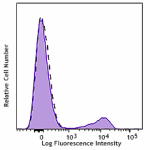
Human peripheral blood lymphocytes were stained with CD16 (c... -
Alexa Fluor® 647 anti-human CD16
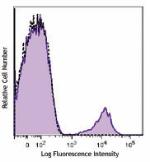
Human peripheral blood lymphocytes were stained with CD16 (c... -
FITC anti-human CD16
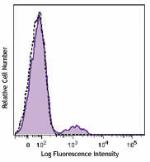
Human peripheral blood lymphocytes were stained with CD16 (c... -
Alexa Fluor® 700 anti-human CD16
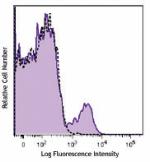
Human peripheral blood lymphocytes were stained with CD16 (c... -
PerCP anti-human CD16
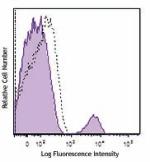
Human peripheral blood lymphocytes were stained with CD16 (c... -
PE/Dazzle™ 594 anti-human CD16
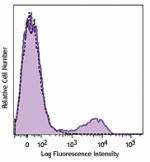
Human peripheral blood lymphocytes were stained with CD16 (c... -
Brilliant Violet 421™ anti-human CD16
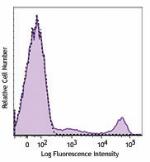
Human peripheral blood lymphocytes were stained with CD16 (c... -
APC/Fire™ 750 anti-human CD16
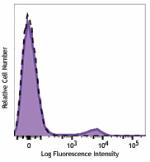
Human peripheral blood lymphocytes were stained with CD16 (c... -
Brilliant Violet 605™ anti-human CD16
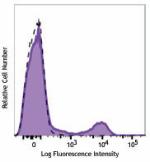
Human peripheral blood lymphocytes were stained with CD16 (c... -
Brilliant Violet 711™ anti-human CD16

Human peripheral blood lymphocytes were stained with CD56 PE... -
Brilliant Violet 510™ anti-human CD16

Human peripheral blood lymphocytes were stained with CD56 AP... -
Brilliant Violet 785™ anti-human CD16

Human peripheral blood lymphocytes were stained with CD56 PE... -
PE/Cyanine5 anti-human CD16

Human peripheral blood lymphocytes were stained with anti-hu... -
TotalSeq™-A1256 anti-human CD16
 Login / Register
Login / Register 











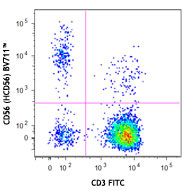
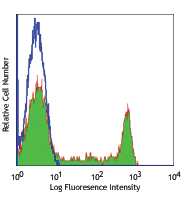

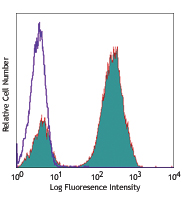



Follow Us